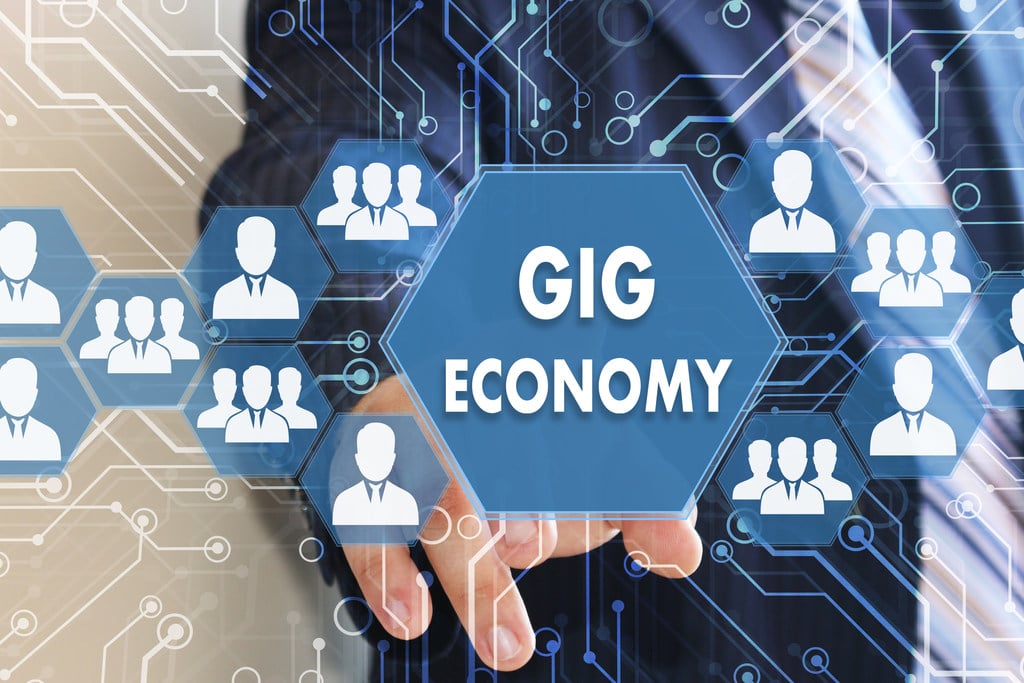 Employers of gig and short-term workers will have to adjust their business models, or see a new generation of employers outcompete them. (Photo: Shutterstock)
Employers of gig and short-term workers will have to adjust their business models, or see a new generation of employers outcompete them. (Photo: Shutterstock)
The workforce as we know it is changing, plain and simple. Looking for work and need to make money fast? Pick up your smartphone and boot up an app that lets you turn your vehicle into a car service or hop on a bicycle to deliver food. You'd be far from the first to do so–according to global consulting firm McKinsey, there are 68 million freelancers or self-employed people in the US today, with around 4 million Americans participating in gig marketplaces like Lyft and Postmates. And for the first time ever, the number of contract workers at Google exceeded the number of employees.
This shift has raised a critical question – should freelance, temp and gig employees be eligible to receive employee benefits? These workers are increasingly driving the American economy. They may be part-time employees (if they are employees at all), but their health needs are very much full-time. Chronic conditions like diabetes, or the need to provide health care for your children, do not end when you finish your latest gig. So there is not only an economic imperative to ensure gig workers have benefits, but a moral one as well.
Spend now, save later
When it comes to providing health benefits, HR leaders and business owners should consult the old adage, “you have to spend money to make money.” Namely, providing health benefits to part-time and gig-economy workers will actually save companies money in the long run. Sounds counterintuitive, right? Wrong. Doing so combats a key issue that employers face – worker churn.
Worker churn is expensive, costing roughly 16 percent of an annual salary for low-paying, high turnover jobs. By that estimate, it costs over $3,000 to replace a retail employee making just $10 an hour. Onboarding new employees, order errors, customer service issues and productivity gaps all add up to meaningful losses. If companies can reduce churn by just a fraction, the costs of benefits pay for themselves.
This idea of “doing well by doing good” extends to the moral side of providing benefits; these people are not simply your employees, but human beings with real needs. When their kid's asthma flares up or their spouse get sick, they can't simply ignore it. Most will do whatever it takes to ensure that their loved ones get healthy, even turning to others – GoFundMe, a popular crowdfunding website, recently revealed that one-third of the website's campaigns are to raise money for medical bills. Companies need to understand that financial compensation is not the only factor gig workers take into consideration when choosing their employment; perks and benefits go a long way in helping them decide.
Redefining benefits
So what can employers do now? Many are competing for talent and thinking about benefits, but that's not enough. In order to attract the best gig-workers, companies must evolve from simply offering “one-size-fits-none” benefits options of yesteryears and learn to embrace the individual, putting control over health directly into employees' hands. A key way to implement this is by offering benefits through a portable system. The Aspen Institute defines portable benefits as having three key characteristics:
- Workers' benefits are not tied to any particular job or company;
- Each company contributes to a worker's benefits at a fixed rate depending on how much he or she works, or earns; and
- Benefits cover independent workers, not just traditional employees
This allows workers to access their benefits across a number of employment options, providing them flexibility. That reassurance goes a long way.
The health benefits structure as we know it won't change overnight. Employers of gig and short-term workers will have to adjust their business models, or see a new generation of employers outcompete them. Insurance companies too will have to rethink the benefits packages they offer for a new category of “employed” workers. And gig workers will need new ways to manage their health and benefits. But with companies like Caviar covering medical bills for employees injured on the job and Uber having to classify drivers as employees regarding unemployment insurance in NY, the tides are beginning to turn in workers' favor.
The U.S. has a longstanding history of supporting entrepreneurs and people who take risks by quitting their jobs, starting their own companies, working for themselves, etc. But we only support the health needs of employees who take full-time positions with a single employer. As long as this disconnect exists, people will be less inclined to take risks and follow their passion. HR and employers should embrace the change so that a gig-worker's biggest concern is which service they will work for that day, and not what to do if they have a broken bone or dental bill.
 Michael Serbinis is the CEO and Founder of League Inc., a next generation health platform. Prior to League, Michael was the Founder and CEO of Kobo, a global leader in ebooks, and docSpace, a pioneer in cloud storage. Michael got his start building one of the first search engines, Zip2 at the start of the Internet boom.
Michael Serbinis is the CEO and Founder of League Inc., a next generation health platform. Prior to League, Michael was the Founder and CEO of Kobo, a global leader in ebooks, and docSpace, a pioneer in cloud storage. Michael got his start building one of the first search engines, Zip2 at the start of the Internet boom.
© 2025 ALM Global, LLC, All Rights Reserved. Request academic re-use from www.copyright.com. All other uses, submit a request to [email protected]. For more information visit Asset & Logo Licensing.







